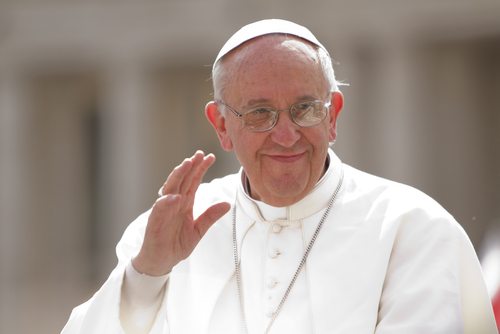
November 26, 2013; Reuters
Pope Francis issued his vision for the Catholic Church and his papacy last week. The Reuters article quotes two experts: “Italian theologian Massimo Faggioli greeted the work as ‘the manifesto of Francis’ while veteran Vatican analyst John Thavis called it a ‘Magna Carta for church reform.’”
Evangelii Gaudium, or “The Joy of the Gospels,” available in html here and as a PDF download here, is referred to by the Vatican as an “apostolic exhortation” and not an “encyclical,” the more common reference to formal papal writings published by the Vatican. The distinction is important, as encyclicals are addressed to bishops, while exhortations are addressed to a larger audience. He expressed his opinion on some of the issues facing humanity and the Catholic Church, though he refrained intentionally from making “The Joy of the Gospels” a comprehensive treatise.
First and foremost, “The Joy of the Gospels” is a vision for the long-term reinvigoration of the Catholic Church, encouraging all, especially the Church itself, to rededicate themselves to a mission-centered approach to their work. Francis believes that too much focus is spent on bureaucracy, hierarchy, and the comfort of church leadership. He encourages bishops, priests, and the faithful to “go forth from [their] own comfort zone in order to reach all the ‘peripheries’ in need of the light of the Gospel.”
Sign up for our free newsletters
Subscribe to NPQ's newsletters to have our top stories delivered directly to your inbox.
By signing up, you agree to our privacy policy and terms of use, and to receive messages from NPQ and our partners.
Francis acknowledges the difficulties in communicating the vision to the world, especially in the popular media. He says, “In today’s world of instant communication and occasionally biased media coverage, the message we preach runs a greater risk of being distorted or reduced to some of its secondary aspects. In this way certain issues which are part of the Church’s moral teaching are taken out of the context which gives them their meaning. The biggest problem is when the message we preach then seems identified with those secondary aspects which, important as they are, do not in and of themselves convey the heart of Christ’s message.” Lack of context and selective reporting is nothing new, and certainly not restricted to media reports on Catholic teaching.
Many news stories focused on the document’s criticism of capitalism as a contributor to poverty. Francis’s harshest criticism is that capitalism shows disrespect for individuals by treating them as tools of production rather than as human beings. He criticizes a world obsessed with material possessions, and he condemns poverty based on the unequal sharing of material wealth. In addition, he decries a “disposable” society where some people have become not just impoverished, but excluded. “The excluded are not the ‘exploited’ but the outcast, the ‘leftovers.’”
It’s important to note that capitalism is not the theme of the document; it is addressed merely (and briefly) as an impediment to the accomplishment of Francis’s goals for the Catholic Church. Francis does not address other current economic systems in practice, not does he point toward a model system that the Catholic Church should embrace.
Francis’s words and the way he chose to deliver them both present lessons and challenges for nonprofits. As a leadership lesson, it’s a brave thing for an organization to pronounce its values, vision, and intentions so openly as to invite interpretation, criticism and evaluation, both from inside and outside the organization. Francis has also left much latitude to bishops to interpret his words and implement locally based strategies to accomplish the goals.
Will Francis’s call for the Catholic Church to focus on mission and, more specifically, on the spiritual and economic relief of the poor be taken up as a challenge by other faiths and other charities as a call to focus on individuals’ basic needs and their organizations’ missions?—Michael Wyland












